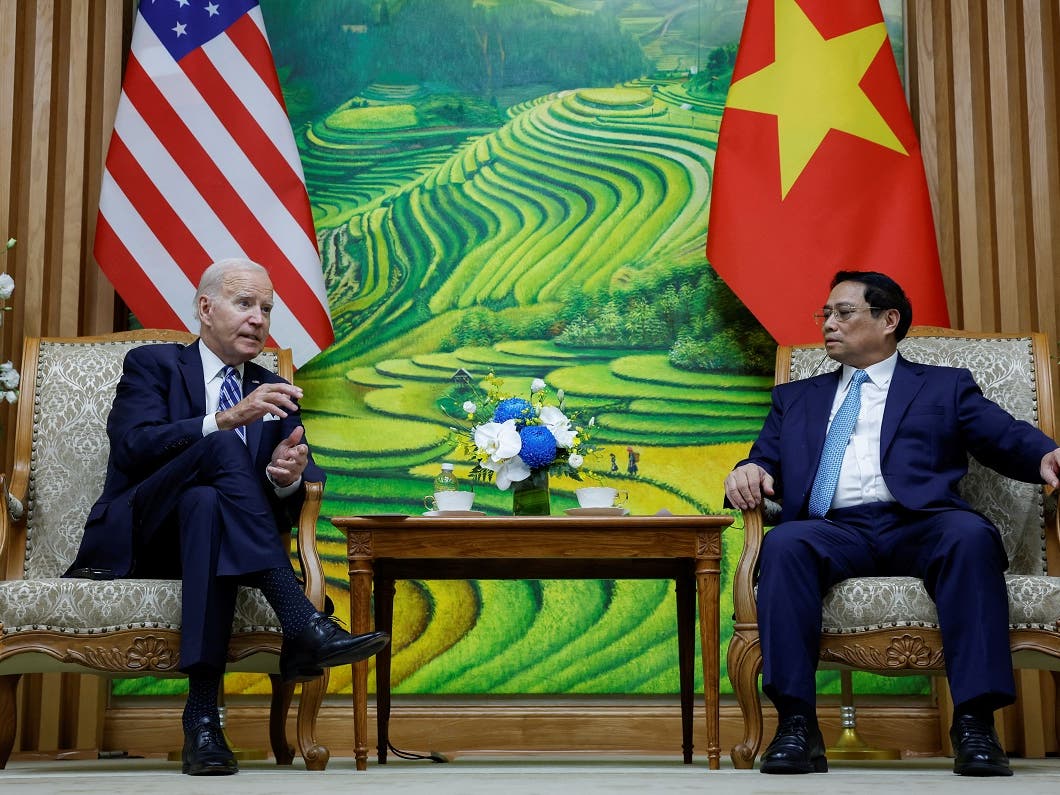
US-Vietnam AI, Aviation Agreements Boost Bilateral Ties
After signing an artificial intelligence (AI) and aviation agreements, the United States and Vietnam’s relationship has improved.
According to Reuters, both nations want to increase trade volume as they negotiate macroeconomic challenges.
President Joe Biden met with Vietnamese government officials and business executives to identify new commercial opportunities.
Top executives from VinFast, Vietnam Airlines, and MoMo attended the high-level event. Executives from Google (NASDAQ: GOOGL), Amkor, Boeing, and Marvell participated in the meeting.
Amidst a cold war with China, the partners pledged to “deepen cooperation” in artificial intelligence, cloud computing, and semiconductors.
President Biden stated, “We are strengthening our cooperation on essential and emergent technologies, particularly in constructing a more robust semiconductor supply chain.”
Biden stated that Microsoft (NASDAQ: MSFT) will produce a generative artificial intelligence tool for Vietnam to increase labor productivity.
Few generative AI models trained in Vietnamese exist, and analysts expect Microsoft’s approach to fill the void.
The report mentioned Amkor’s intentions for a semiconductor manufacturing plant costing $1.5 billion. Initial reports indicate that the facility will begin operations in October and produce artificial intelligence processors for training large language models (LLMs).
Marvell and Synopsys seek market share due to their ambitious plans to establish chip design centers in Vietnam.
The United States has every reason to invest in Vietnam’s artificial intelligence as it pursues new markets for semiconductor materials.
In August, in response to the U.S. prohibition on NVIDIA (NASDAQ: NVDA) supplying China with AI hardware, China restricted the export of gallium and germanium, two rare materials required to manufacture AI circuits.
As nations compete for AI chips, a global regulatory framework to safeguard AI from malicious actors is being developed.
China has issued AI firm regulations, while the United States convenes with key AI developers to determine a regulatory path.
China has introduced over seventy AI-based generative tools in the past month, whereas the United States is lagging.
CertiK stated in a paper that generative artificial intelligence tools may least impact Web3 smart contract developers due to their immaturity and security vulnerabilities.





